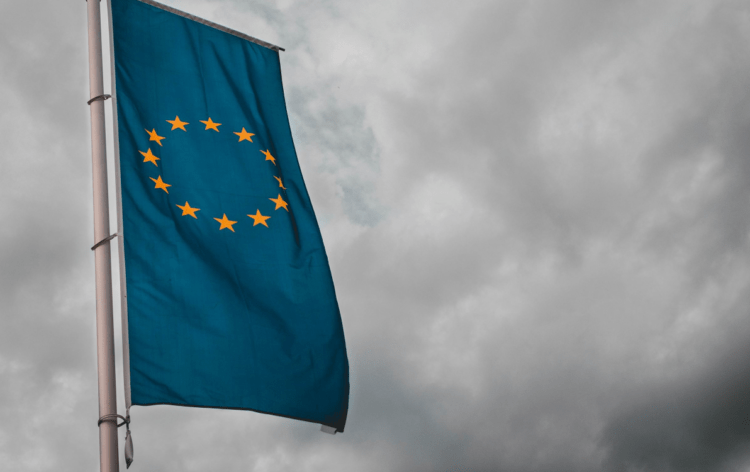Europe’s ‘Double Crisis’: Geopolitical Turmoil and Economic Resilience Unveiled

In the wake of unprecedented challenges, Europe finds itself at a crossroads, facing what the EU economics chief has termed a ‘double crisis.’ As the continent grapples with the economic fallout of the COVID-19 pandemic, it also confronts the profound implications of climate change and the urgent need for sustainable solutions.
In this article, we delve into the insights provided by the EU economics chief, who believes that while Europe stands on the precipice of recession, there is still hope for recovery. We explore the strategies and policies that can potentially steer Europe away from economic decline and towards a future of resilience and growth.
Navigating Europe’s ‘Double Crisis’: Geopolitical Turmoil and Economic Resilience
Europe currently finds itself grappling with what European Commissioner for Economic Affairs, Paolo Gentiloni, has aptly labeled a “double crisis.” This multifaceted challenge stems from the geopolitical upheaval caused by Russia’s full-scale invasion of Ukraine and the subsequent economic repercussions felt across the European continent.
Gentiloni emphasized that while this crisis undoubtedly had a global impact, its economic toll was particularly severe on Europe, with Germany bearing a significant brunt. The invasion had initially raised concerns of a looming economic downturn in the region.
Nonetheless, Europe has managed to mitigate some of these concerns by diversifying its energy sources, reducing its reliance on Russian energy supplies, which had been a primary vulnerability. Governments in the region also stepped in to provide relief to consumers grappling with soaring energy costs.
In 2022, the Eurozone ultimately saw a growth rate of 3.5%, as reported by the International Monetary Fund. While the IMF projects a somewhat more modest growth rate of 0.8% for the Eurozone in the current year, followed by 1.4% in 2024, Gentiloni remains cautiously optimistic.
Acknowledging the signs of a slowdown that emerged in the final quarter of 2022, Gentiloni remains resolute in rejecting the label of a recession for Europe. He asserts that the region is actively working to avert a recessionary spiral.
One of the pressing challenges on Europe’s economic horizon is achieving “energy independence.” This pursuit, while vital, has come at a cost, placing a strain on families and contributing to inflationary pressures. These factors have contributed to the recent concerns about an economic slowdown in the region.
While the European Commission prepares to release updated economic forecasts, Gentiloni’s comments serve as a reminder that Europe’s economic landscape remains complex and dynamic. Recent economic data, including a contraction in European business activity and persistent inflation above the European Central Bank’s target, underscores the challenges ahead.
In conclusion, Europe’s “double crisis” presents both immediate and long-term economic challenges. While Gentiloni’s optimism shines through, it is evident that navigating these turbulent waters will require vigilance, innovation, and concerted efforts to ensure the region’s economic stability and growth.
How This Will Impact Traders on Financial Markets in the EU?
The “double crisis” facing Europe, as highlighted by European Commissioner for Economic Affairs Paolo Gentiloni, will have significant implications for traders active in European financial markets. These markets encompass a wide range of assets, including equities, bonds, currencies, and derivatives. Here’s how the crisis may impact traders:
- Volatility and Risk Management: Geopolitical turmoil and economic uncertainty can lead to increased market volatility. Traders will need to adapt their risk management strategies to account for sudden price swings. For example, currency traders may see sharp fluctuations in the euro’s value against other major currencies, necessitating more cautious position sizing and stop-loss orders.
- Sector-Specific Impacts: Different sectors of the European economy may be affected differently. For instance, energy and commodity traders may closely monitor developments related to Europe’s pursuit of energy independence. Sanctions or disruptions in energy supply chains could have a direct impact on commodities prices and energy company stocks.
- Bonds and Interest Rates: The European Central Bank’s monetary policy may be influenced by the crisis. Traders in bond markets will closely watch for any changes in interest rates, as they affect bond yields and prices. A shift in ECB policy could lead to adjustments in fixed-income portfolios.
- Stock Market Performance: Equity traders will need to closely follow the performance of European stock markets, particularly benchmark indices like the Euro Stoxx 50 or DAX. Companies’ earnings and stock valuations may be influenced by the broader economic environment, and traders will need to adjust their strategies accordingly.
- Currency Pairs: Forex traders will be attuned to changes in currency pairs involving the euro (EUR). Geopolitical tensions can impact exchange rates, making it crucial for traders to keep a watchful eye on news and events that may affect EUR/USD, EUR/GBP, or other pairs.
- Hedging Strategies: Given the uncertainty, traders may increasingly turn to hedging strategies to protect their positions from adverse market movements. Options and futures contracts can be valuable tools for managing risk in a volatile environment.
- Global Spillover Effects: The crisis in Europe is not isolated; it can have global repercussions. Traders who have exposure to international markets will need to consider how European developments might impact their investments outside of Europe.
In summary, the “double crisis” in Europe will inject a significant degree of uncertainty into financial markets. Traders will need to remain adaptable, closely monitor developments, and employ diversified strategies to navigate these challenging conditions successfully. The ability to quickly assess and respond to evolving situations will be paramount for traders aiming to thrive in this dynamic environment.


























Comments (0 comment(s))